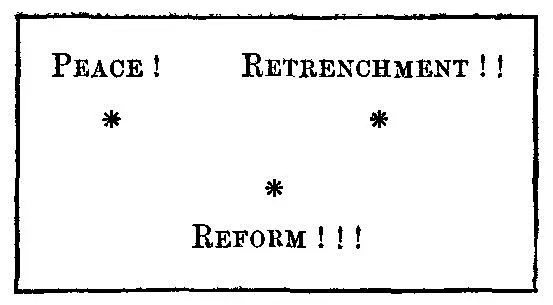Samuel Warren - Ten Thousand a-Year. Volume 3
Здесь есть возможность читать онлайн «Samuel Warren - Ten Thousand a-Year. Volume 3» — ознакомительный отрывок электронной книги совершенно бесплатно, а после прочтения отрывка купить полную версию. В некоторых случаях можно слушать аудио, скачать через торрент в формате fb2 и присутствует краткое содержание. Жанр: foreign_sf, foreign_antique, foreign_prose, на английском языке. Описание произведения, (предисловие) а так же отзывы посетителей доступны на портале библиотеки ЛибКат.
- Название:Ten Thousand a-Year. Volume 3
- Автор:
- Жанр:
- Год:неизвестен
- ISBN:нет данных
- Рейтинг книги:3 / 5. Голосов: 1
-
Избранное:Добавить в избранное
- Отзывы:
-
Ваша оценка:
- 60
- 1
- 2
- 3
- 4
- 5
Ten Thousand a-Year. Volume 3: краткое содержание, описание и аннотация
Предлагаем к чтению аннотацию, описание, краткое содержание или предисловие (зависит от того, что написал сам автор книги «Ten Thousand a-Year. Volume 3»). Если вы не нашли необходимую информацию о книге — напишите в комментариях, мы постараемся отыскать её.
Ten Thousand a-Year. Volume 3 — читать онлайн ознакомительный отрывок
Ниже представлен текст книги, разбитый по страницам. Система сохранения места последней прочитанной страницы, позволяет с удобством читать онлайн бесплатно книгу «Ten Thousand a-Year. Volume 3», без необходимости каждый раз заново искать на чём Вы остановились. Поставьте закладку, и сможете в любой момент перейти на страницу, на которой закончили чтение.
Интервал:
Закладка:
Samuel Warren
Ten Thousand a-Year. Volume 3
CHAPTER I
There had not been a contested election at Yatton, till the present one between Mr. Delamere and Mr. Titmouse, for a long series of years; its two members having been, till then, owing to the smallness of the constituency, their comparative unanimity of political sentiment, and the dominant influence of the Yatton family, returned, pretty nearly, as a matter of course. When, therefore, quiet little Yatton (for such it was, albeit politically enlarged by the new Act) became the scene of so sudden and hot a contest as that which I am going to describe, and under such novel and exciting circumstances, it seemed in a manner quite beside itself. The walls were everywhere covered with glaring placards—red, blue, green, yellow, white, purple—judiciously designed to stimulate the electors into a calm and intelligent exercise of their important functions. Here are the inscriptions upon a few of them:—
"Vote for Titmouse, the Man of the People!"
"Titmouse and Civil and Religious Liberty!"
"Titmouse and Cheap Ale!"
"Titmouse and Purity of Election!"
"Titmouse and Negro Emancipation!"
"Vote for Titmouse and No Mistake!"
"Titmouse and Quarterly Parliaments, Vote by Ballot, and Universal Suffrage!"
['Twas thus that the name of my little friend, like that of many others of his species, was attached to great public questions, somewhat after the manner of a kettle tied to a dog's tail!]
But others were to be met with of a more elaborate and impressive character.
"Electors of Yatton!! Be not deceived!!! The enemy is among you! Do you wish to reap the full fruits of the glorious boon lately conferred on you? Rush to the poll, and Vote for Titmouse. Do you wish to see them torn from your grasp by a selfish and arrogant aristocracy? Get a pair of handcuffs , and go and vote for—Mr. Delamere!!!!
"Quære. If a certain Boroughmongering Peer should command his son to vote for the REPEAL of the Great Bill which enfranchised the inhabitants of Grilston, Succombe, and Warkleigh—would not that son obey him? How would this be , Mr. Delamere?"
'Twas not, to give the devil his due, Mr. Titmouse's fault that his placards did not contain many vulgar personalities against his opponent; but owing entirely to Mr. Gammon's want of the requisite wit and spirit. That gentleman felt, in fact, that such a candidate as Mr. Delamere afforded but few salient points of attack, in respect either of his person, his position in society, or his conduct. He also, by the way, had his placards:—
"Vote for Delamere!"
"Delamere and Independence!"
"Vote for Delamere the Farmer's Friend!"
"Delamere and the Constitution in Church and State!"
Both the candidates established their headquarters at Grilston; Mr. Delamere at the " Hare and Hounds " Inn, Mr. Titmouse at the " Woodlouse ." Over the bow-window of the former streamed a noble blue banner, with an emblazonment of the Bible and Crown, and the words, "Church, King, and Constitution—Old England forever!" Over the latter hung an immense yellow banner, with three stars, thus:—

(being the, "Three Polar Stars" spoken of in Mr. Titmouse's Address,) and the words—"Peace! Retrenchment!! Reform!!!" in immense gilt letters. The walls and windows of each were, moreover, covered with varicolored placards—but I shall not weary the reader by attempting to describe in detail the humors of a country election, which have employed, already, thousands of able and graphic pens and pencils. Surely, what else are they than the sticks and straws which float along the eddying and roughened surface? The whole mass of water is moving along; and our object should be rather to discover its depth, force, and direction. Principles are in conflict; the fate of the nation is, in a measure, involved in a popular election. Such matters as I have alluded to, are but the laughable devices resorted to, in order to delude the grinning vulgar, and disguise the movements of those calm and calculating persons who are playing the deep game of politics. Under cover of a ludicrous hubbub, might be observed, for instance, in this little borough—subject to certain petty local disturbing forces—a deadly struggle for ascendency between the monarchical and the democratical principle; between rampant innovation and obstinate immobility; between the wealthy few and the many poor; between property and ability. If anything like this were the case, how many of the electors—new or old—of Yatton—(who may perhaps be compared to chessmen in the hands of long-headed players)—knew any more about the matter than a private soldier at Waterloo thought of, comprehended, or appreciated, the complicated and mighty schemes of a Wellington or Napoleon, whose bidding he was doing, or of the prodigious consequences attached to the success or failure of either? Some people talk vehemently about the "paramount necessity for educating the lower classes." It is, indeed, of incalculable importance that they should be instructed; but is it not of still greater importance that the UPPER CLASSES should be instructed, if only on account of their being the holders of that PROPERTY, in greater or less proportions, with its inseparable power and influence, which, directly or indirectly, determines all the movements of the state? Could universal suffrage be supposed to exist consistently with the preservation of social order—of society—it would still be impossible to extirpate or effectually to counteract the influence of property, in whose hands soever it might be placed. Pluck out of the vilest of the bellowing bullies surrounding the hustings, him (of course a non-elector) most conspicuous for his insolence and brutality; imagine him suddenly or gradually become the owner of a great, or a small property, with the influence it gives him over customers, tenants, dependents: do you suppose that he will not at once, either gently or roughly, according to his temper, begin to exercise his power, (that which is so dear to the heart of man,) by dictating the exercise of the elective franchise on behalf of those political opinions which he may happen to favor? Is not THIS the man to instruct, and the better in proportion to the extent of his real influence? Except in those brief and horrid intervals of social convulsion, in which [Greek: dika kai panta palin strepetai], however popularized and extended may apparently be the system of electing parliamentary representatives, those who really return members to Parliament will—whether themselves actually electors or not, and whether directly or indirectly—be the holders of property, in villages, in towns, in cities, in boroughs and counties. The influence of property is, in truth, inevitable as that of gravitation: and losing sight of this, people may split their heads in vain, and chatter till the arrival of the Greek kalends, about extending farther and farther the elective franchise, shortening Parliaments, and voting by ballot. Whether it ought to be so, signifies little, when we know that it is, and will be so:—but now it is time to return to the Yatton election; and if I be but this once forgiven, I will not diverge again in a hurry from the main course of events.
Lord De la Zouch, who resided some eight or ten miles from Yatton, soon discovered, as also did sundry other able and experienced electioneering friends, taking an interest in his son's success, that the movements of the enemy were directed by a strong and skilful hand; and which never could be that of— Mr. Titmouse
Читать дальшеИнтервал:
Закладка:
Похожие книги на «Ten Thousand a-Year. Volume 3»
Представляем Вашему вниманию похожие книги на «Ten Thousand a-Year. Volume 3» списком для выбора. Мы отобрали схожую по названию и смыслу литературу в надежде предоставить читателям больше вариантов отыскать новые, интересные, ещё непрочитанные произведения.
Обсуждение, отзывы о книге «Ten Thousand a-Year. Volume 3» и просто собственные мнения читателей. Оставьте ваши комментарии, напишите, что Вы думаете о произведении, его смысле или главных героях. Укажите что конкретно понравилось, а что нет, и почему Вы так считаете.












